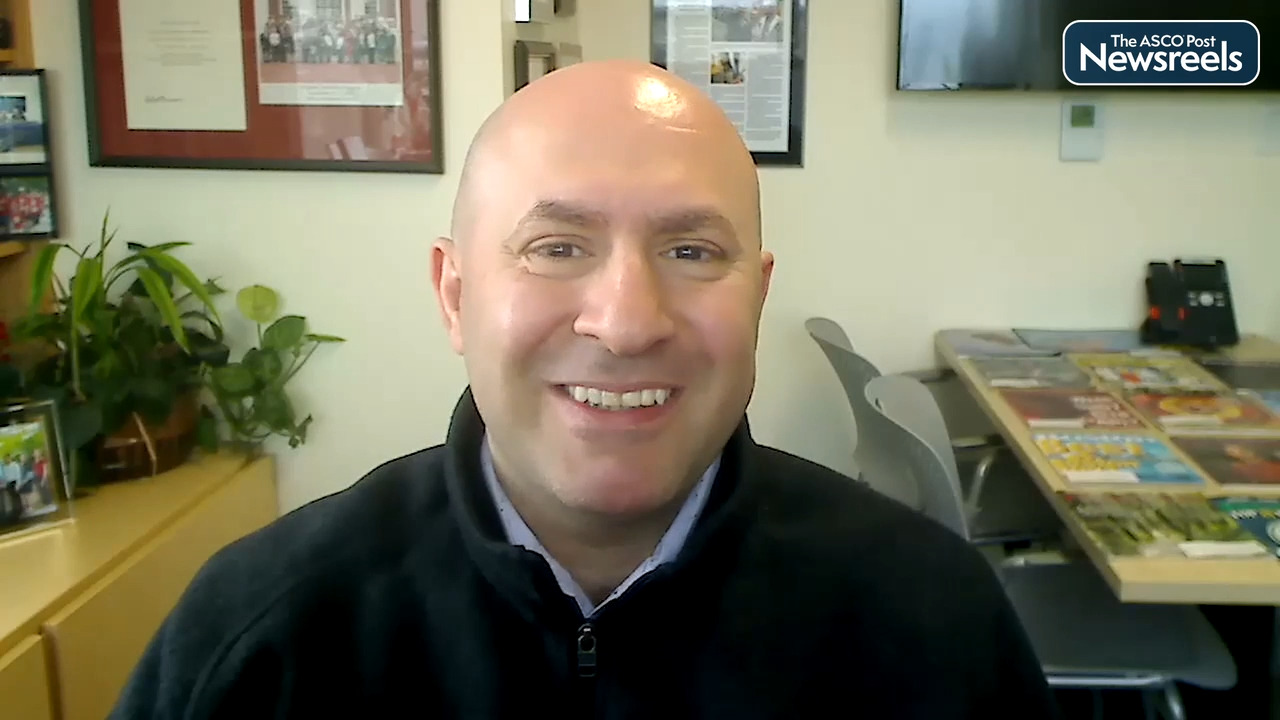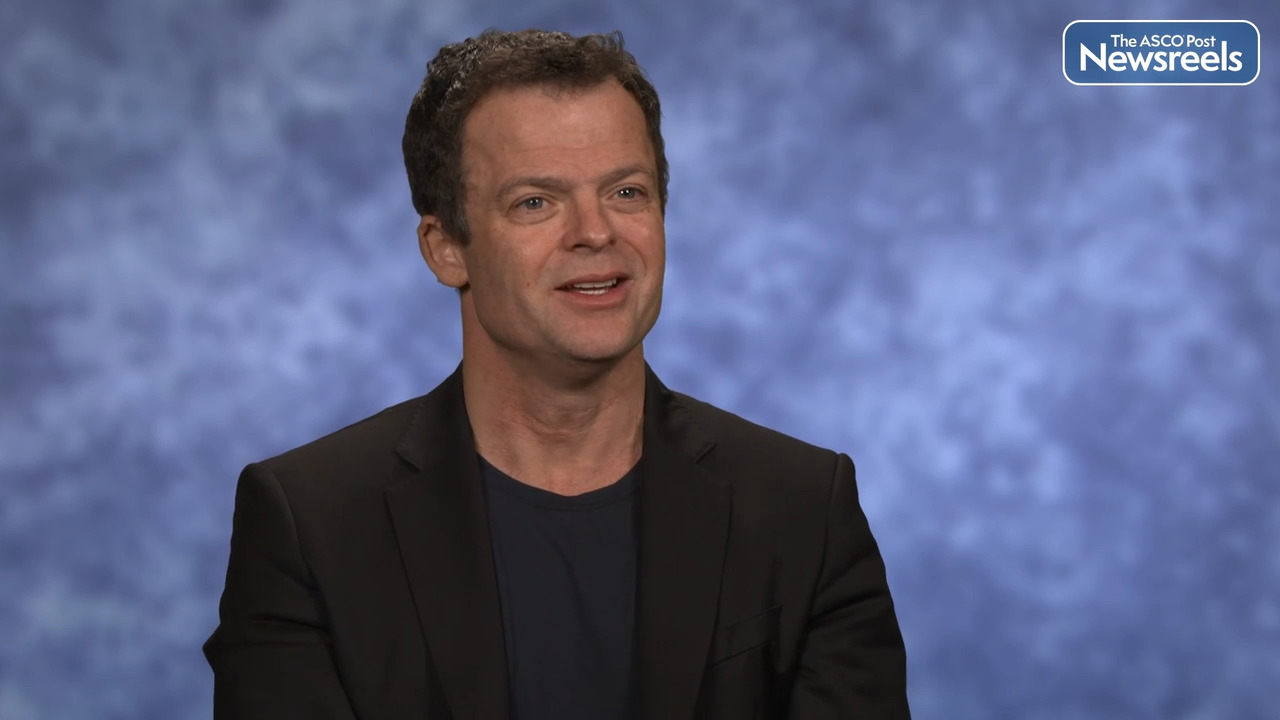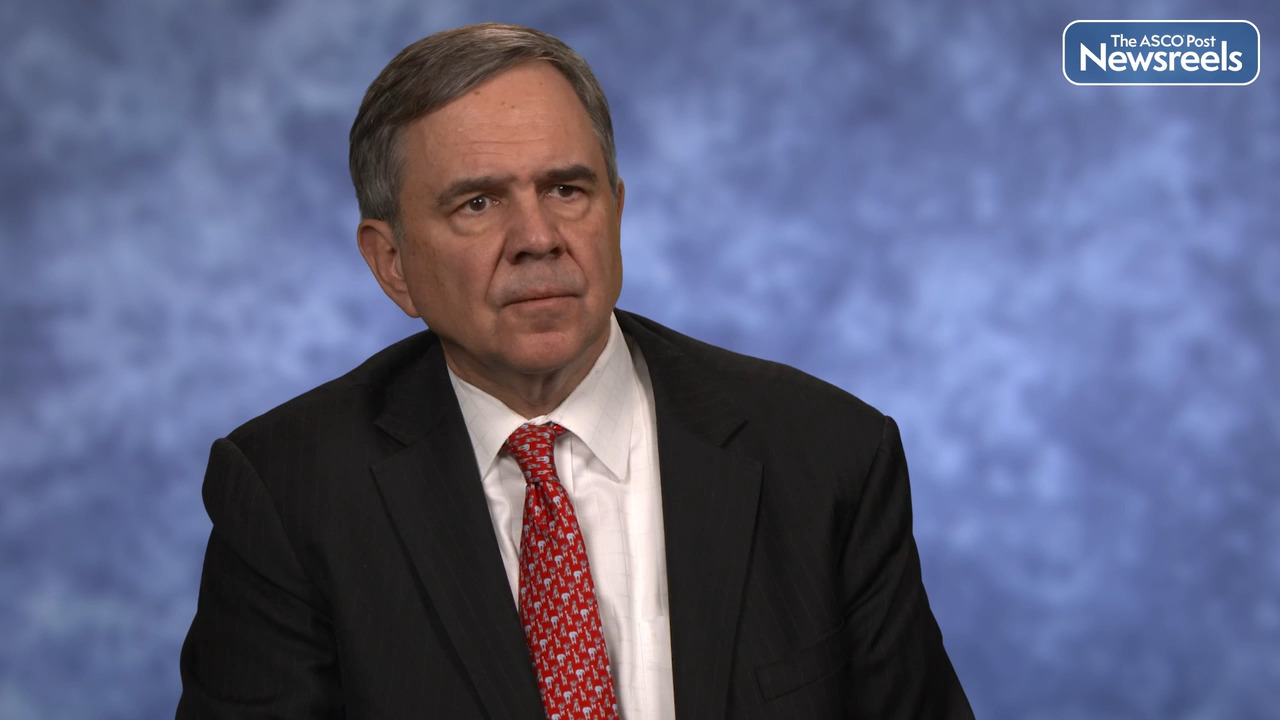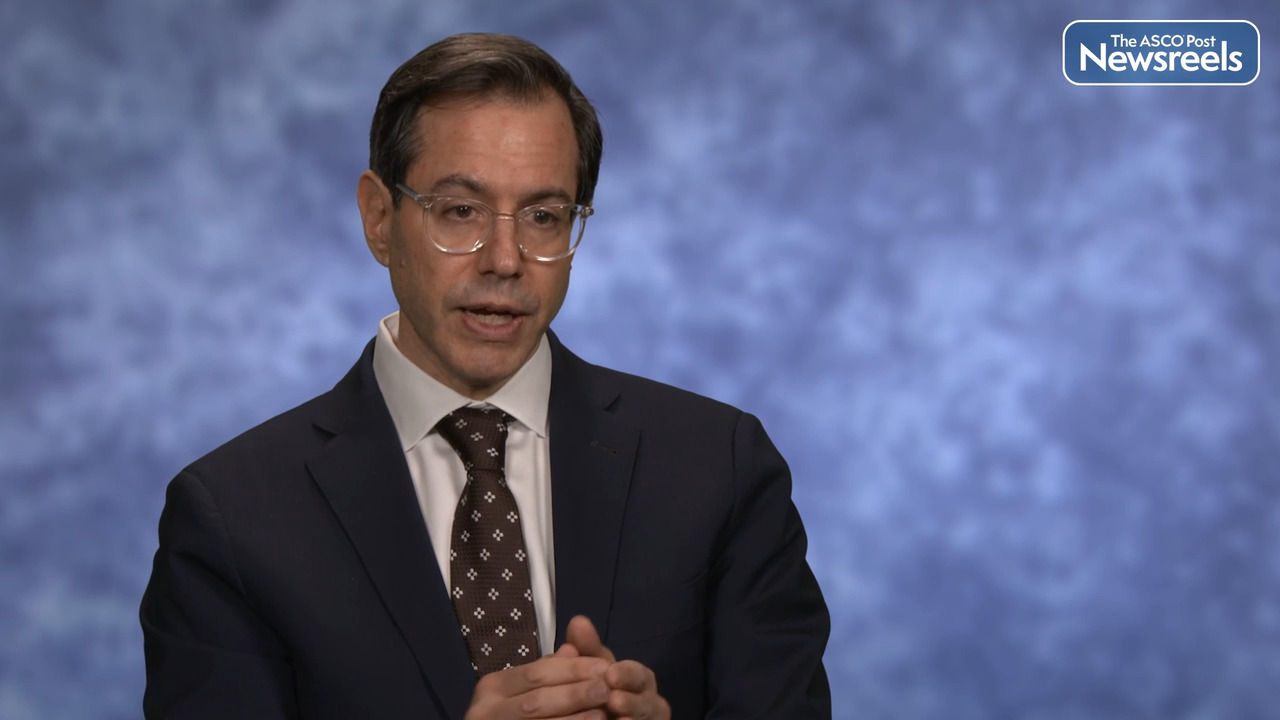Transcript
Disclaimer: This video transcript has not been proofread or edited and may contain errors.
Treatment with immune checkpoint inhibitors is the standard of care in metastatic urothelial carcinoma after failure of platinum-based chemotherapy. The randomized phase three trial IMvigor130, ask the question whether there is a role for atezolizumab in first line treatment in patients with metastatic urothelial cancer. It randomized patients to get either atezolizumab plus chemotherapy, arm A. Atezolizumab monotherapy, arm B and platinum gem chemotherapy, arm C. The co-primary efficacy endpoints of these study was progression-free survival between arms A and C, so the combination versus chemotherapy and overall survival for the same comparison. The first co-primary efficacy endpoint was met, but the second was not. Therefore, the results that I presented are exploratory analysis rather than formal analysis of overall survival, and it is the final overall survival analysis for arms B and C. What the results showed, confirmed the results of previous interim analysis showing no difference in overall survival between atezolizumab and chemotherapy.
The median overall survival for atezolizumab arm was 15.2 months versus 13.3 months for chemotherapy alone. When there was analysis according to PD-L1 status, then the patients whose tumors did not express PD-L1 or expressed low levels of PD-L1 show no difference in survival between chemotherapy and atezolizumab. Nevertheless, in patients with tumor high expression PD-L1, there was a suggestion of progression for overall survival. The median overall survival for atezolizumab cause 27.5 months compared to 18.6 months for chemotherapy alone. And when we focused this analysis in cis-ineligible patients, then we found that this actually progression of survival was more pronounced with a median overall survival for atezolizumab 18.8 months versus 10 months for chemotherapy.
Safety analysis confirmed that tolerability is better with atezolizumab versus chemotherapy and without no new safety signals for atezolizumab in this analysis. So, in conclusion, our final overall analysis showed no benefit in survival from atezolizumab versus chemotherapy. Nevertheless, our exploratory findings suggest that there is a benefit for atezolizumab monotherapy in patients who are cis-ineligible with metastatic urothelial cancer, which expresses highly PD-L1. Of course, these results have to be seen in the context of the current standard of cure in metastatic urothelial cancer, which is chemotherapy, followed by avelumab maintenance in non-progressors. Nevertheless, our results both efficacy and also safety, suggest that in this population cis-ineligible metastatic urothelial cancer, high expression of PD-L1, atezolizumab still has a role to play as first line chemotherapy.





